
Jacmel: The Artistic Heartbeat of Haiti
Jacmel, a charming coastal town in Haiti, is a treasure trove of art, culture, and history. Nestled along the Caribbean Sea, this picturesque city is known for its vibrant arts scene, colonial architecture, and festive atmosphere. Founded in 1698, Jacmel offers a rich historical tapestry intertwined with modern-day creativity. As you wander through the cobblestone streets, you'll be captivated by the colorful murals and handcrafted ironworks that adorn many of the buildings. The city's cultural heritage is palpable, with local artisans showcasing their crafts in bustling markets. Jacmel is also famous for its papier-mâché masks and sculptures, which play a significant role in the city's annual Carnival celebrations. Nature lovers will find solace in Jacmel's pristine beaches and nearby waterfalls, such as the stunning Bassin Bleu. The turquoise waters and lush surroundings provide a perfect backdrop for relaxation or adventure. Whether you're exploring the historic downtown area, enjoying the local cuisine, or soaking in the natural beauty, Jacmel promises an unforgettable experience for every traveler.
Local tips in Jacmel
- Visit during Carnival season to experience Jacmel's colorful and lively celebrations.
- Explore the local art galleries and markets for unique handmade crafts and souvenirs.
- Take a guided tour to Bassin Bleu for a refreshing dip in the natural pools and waterfalls.
- Try local dishes such as griot and plantains at the street food stalls for an authentic taste of Haitian cuisine.
- Wear comfortable shoes for walking on the cobblestone streets and exploring the hilly terrain.
Jacmel: The Artistic Heartbeat of Haiti
Jacmel, a charming coastal town in Haiti, is a treasure trove of art, culture, and history. Nestled along the Caribbean Sea, this picturesque city is known for its vibrant arts scene, colonial architecture, and festive atmosphere. Founded in 1698, Jacmel offers a rich historical tapestry intertwined with modern-day creativity. As you wander through the cobblestone streets, you'll be captivated by the colorful murals and handcrafted ironworks that adorn many of the buildings. The city's cultural heritage is palpable, with local artisans showcasing their crafts in bustling markets. Jacmel is also famous for its papier-mâché masks and sculptures, which play a significant role in the city's annual Carnival celebrations. Nature lovers will find solace in Jacmel's pristine beaches and nearby waterfalls, such as the stunning Bassin Bleu. The turquoise waters and lush surroundings provide a perfect backdrop for relaxation or adventure. Whether you're exploring the historic downtown area, enjoying the local cuisine, or soaking in the natural beauty, Jacmel promises an unforgettable experience for every traveler.
When is the best time to go to Jacmel?
Iconic landmarks you can’t miss
Champ de Mars
Explore the cultural heart of Port-au-Prince at Champ de Mars, a serene park filled with history, lush greenery, and vibrant local life.
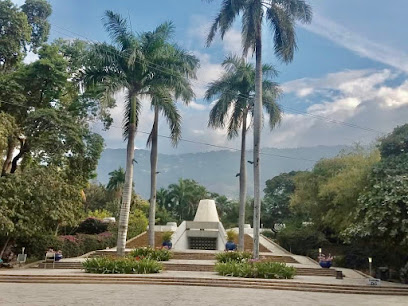
Raymond Les Bains
Experience the tranquil beauty of Raymond Les Bains, a serene beach pavilion in Jacmel, where stunning views and relaxation await every visitor.
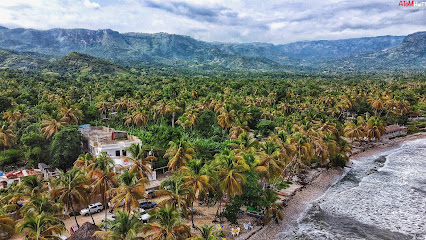
Hotel Cyvadier
Experience the beauty of Jacmel at Hotel Cyvadier, where comfort meets Caribbean charm, and local culture thrives.

Cap Lamandou Hotel
Experience the beauty of Jacmel at Cap Lamandou Hotel, where comfort meets local culture along the stunning Caribbean coast.

Fort Jacques et Fort Alexandre
Experience the rich history and stunning views at Fort Jacques et Fort Alexandre, a historical gem in the heart of Haiti's breathtaking landscape.
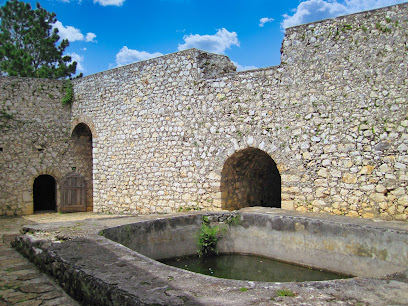
Bassin Bleu
Explore Bassin Bleu: A stunning oasis of turquoise waters and cascading waterfalls in the heart of Haiti, perfect for relaxation and adventure.
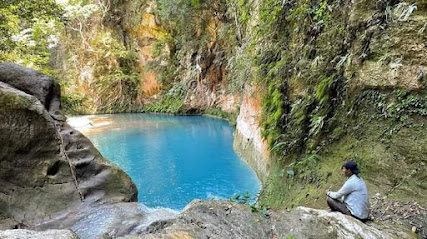
Lakou New York
Experience the vibrant culture of Haiti at Lakou New York, an exhibition and trade center showcasing local artistry and craftsmanship in Jacmel.
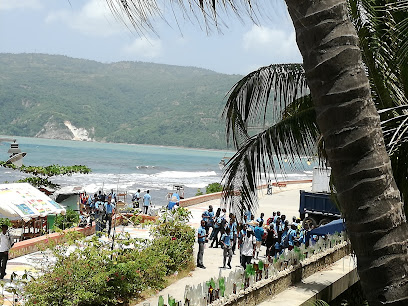
Jean-Jacques Dessalines Monument
Discover the Jean-Jacques Dessalines Monument in Port-au-Prince, a powerful symbol of Haiti’s independence and cultural heritage, rich in history and local life.
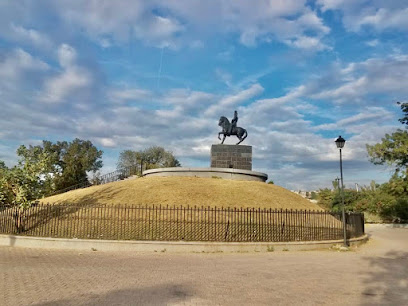
Hotel Florita Residential Hotel
Experience the charm and history of Jacmel at Hotel Florita, where comfort meets local culture in a vibrant coastal setting.

Cafe Koze
Discover the vibrant flavors of Jacmel at Cafe Koze, where delicious local cuisine meets a cozy atmosphere in this charming Haitian café.
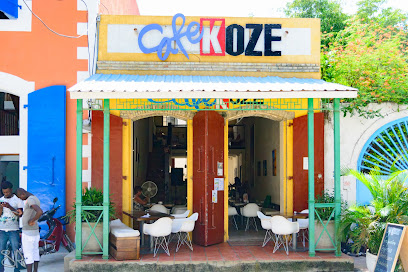
Tour 2004 Bicentennial Monument
Explore the historical significance and artistic beauty of Tour 2004 Bicentennial Monument in Port-au-Prince, a must-visit for cultural enthusiasts.
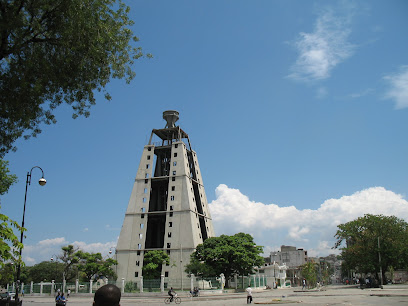
Hotel De La Place
Experience authentic Haitian cuisine at Hotel De La Place, a cozy restaurant in the heart of Jacmel, perfect for tourists seeking local flavors.
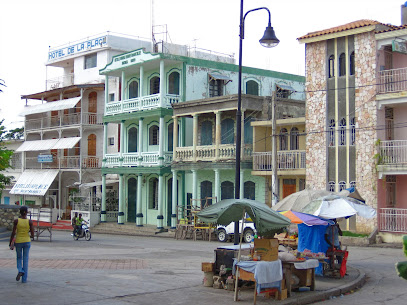
Jacmel Arts Center (Sant D'A Jakmel)
Discover the vibrant cultural heartbeat of Jacmel at the Jacmel Arts Center, where local artistry comes to life in a colorful and engaging environment.
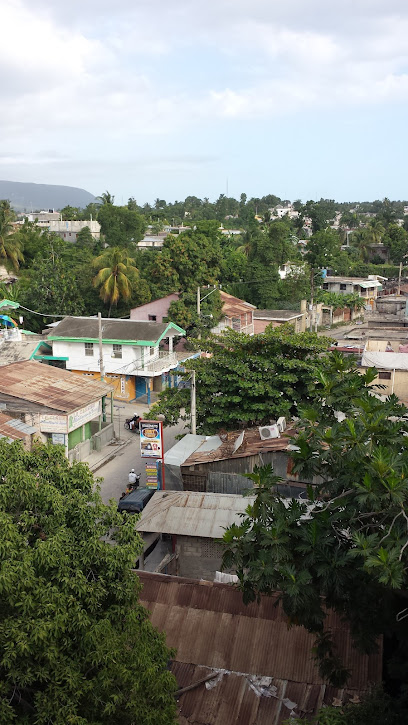
Place Toussaint Louverture Jacmel
Experience endless fun and excitement at Place Toussaint Louverture, Jacmel's premier amusement park, where adventure awaits for all ages.
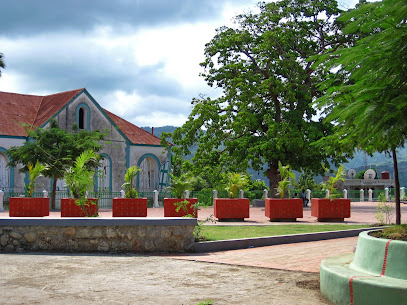
Marigot
Discover the vibrant culture and stunning scenery of Marigot, a charming destination in Jacmel, Haiti, perfect for immersing in local traditions and flavors.
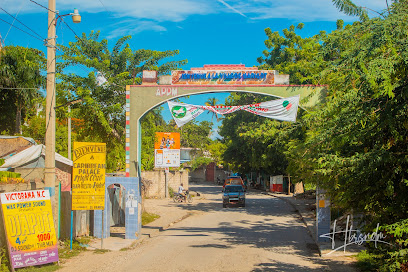
Unmissable attractions to see
Champ de Mars
Experience the cultural vibrancy of Champ de Mars in Port-au-Prince, where history, art, and local life intertwine in a breathtaking urban park.
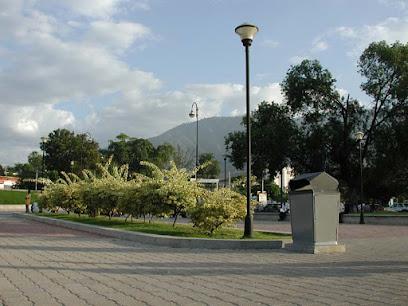
The National Pantheon Museum
Explore Haiti's vibrant culture and history at The National Pantheon Museum, a must-visit heritage site in Port-au-Prince.
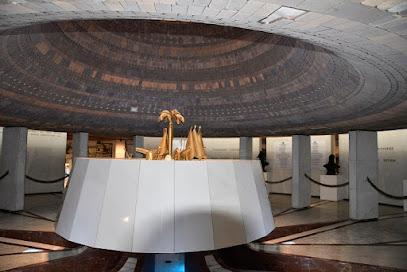
Bassin Bleu
Explore the stunning Bassin Bleu in Jacmel, a breathtaking natural wonder featuring turquoise waters, waterfalls, and lush tropical surroundings.
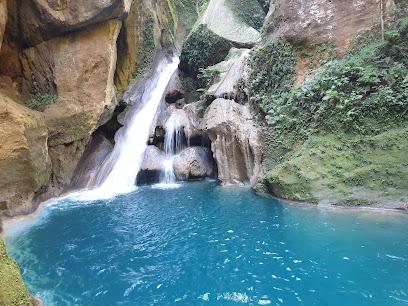
Lakou New York
Explore the vibrant art and culture of Haiti at Lakou New York in Jacmel, an exhibition center showcasing local talents and creativity.
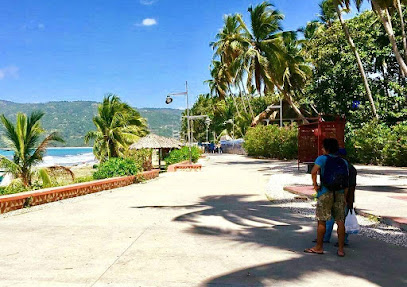
Cathedral of Our Lady of the Assumption in Port-au-Prince
Explore the architectural beauty and historical significance of the Cathedral of Our Lady of the Assumption in Port-au-Prince, a must-visit landmark in Haiti.
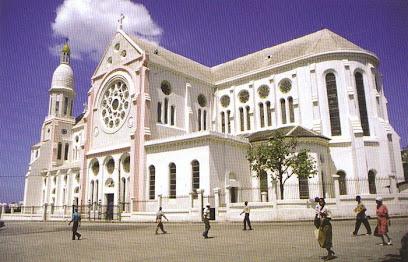
In Martissant Park
Experience the lush landscapes and vibrant atmosphere of Martissant Park, a must-visit destination for tourists in Carrefour, Haiti.
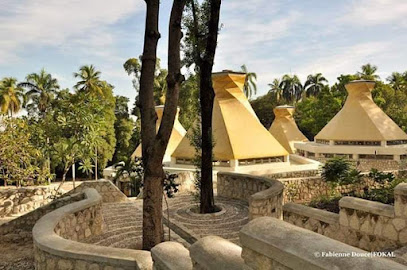
La Visite National Park
Discover the breathtaking landscapes and rich biodiversity of La Visite National Park, a hidden gem in Haiti perfect for hiking and nature lovers.
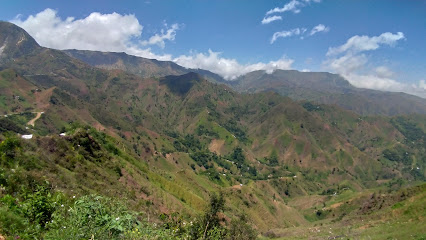
Beach La Co New York
Experience the breathtaking beauty of Beach La Co in Jacmel, Haiti, where golden sands meet vibrant culture and endless adventure awaits.
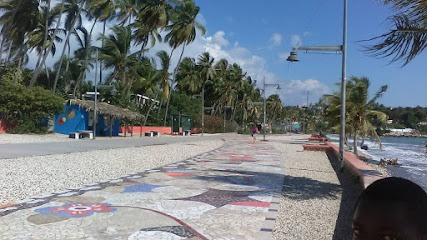
Jacmel Arts Center (Sant D'A Jakmel)
Explore the heart of Jacmel's artistic culture at the Jacmel Arts Center, where creativity and heritage come to life in every corner.
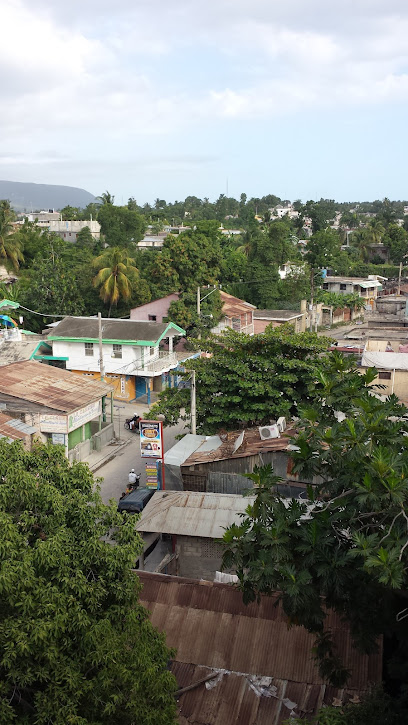
Place Toussaint Louverture Jacmel
Experience family fun and local culture at Place Toussaint Louverture, an amusement park in Jacmel perfect for all ages.
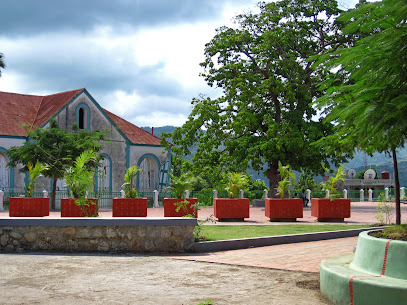
Jacmel, Haïti
Explore Jacmel, an artistic coastal town in Haiti known for its vibrant culture, stunning beaches, and rich history.
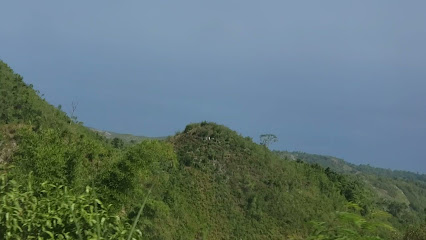
Bassin bleu jacmel
Discover the stunning natural pools of Bassin Bleu in Jacmel, Haiti, a perfect blend of adventure and tranquility amidst lush tropical beauty.

Eagle Tours & Adventure
Explore the beauty and culture of Port-au-Prince with Eagle Tours & Adventure, your trusted guide to unforgettable experiences in Haiti.

Essential places to dine
Magdoos Restaurant
Discover authentic Lebanese flavors at Magdoos Restaurant in Petion-Ville - a culinary treasure for every traveler.
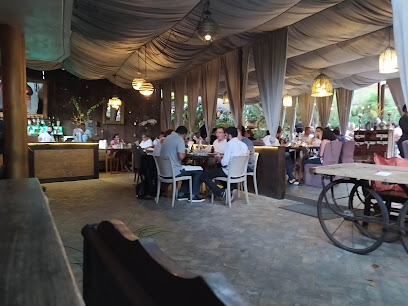
Hotel Cyvadier
Discover paradise at Hotel Cyvadier in Jacmel - where relaxation meets vibrant Haitian culture amidst stunning ocean views.

Jacmel Pizzeria
Experience the vibrant flavors of Haiti at Jacmel Pizzeria – where delicious pizzas meet warm hospitality in picturesque Jacmel.
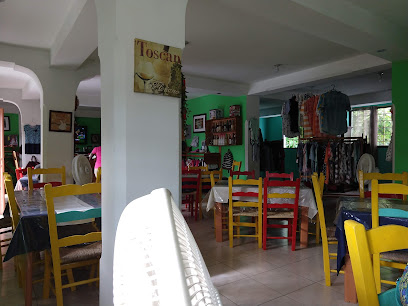
Lakou Trankil
Savor authentic Haitian cuisine at Lakou Trankil in Jacmel – where vibrant flavors meet warm hospitality in an artistic setting.
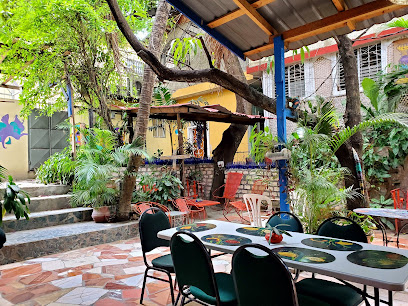
Hotel De La Place
Discover authentic Haitian flavors at Hotel De La Place in Jacmel, where every dish tells a story.
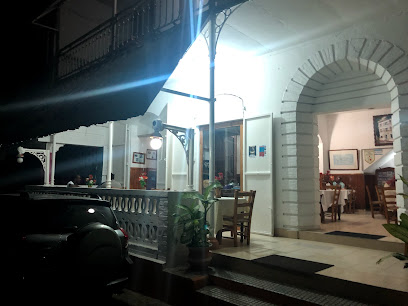
Vue Sur Mer
Experience exquisite Haitian cuisine at Vue Sur Mer while enjoying stunning ocean views and a relaxing seaside atmosphere.
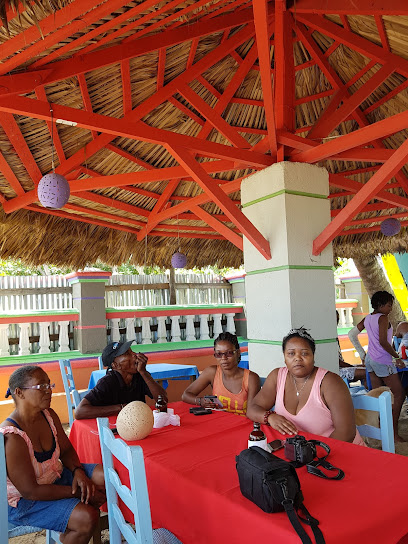
Makadaso Jacmel Diner
Discover authentic Haitian cuisine at Makadaso Jacmel Diner in the charming town of Jacmel - where every meal tells a story.
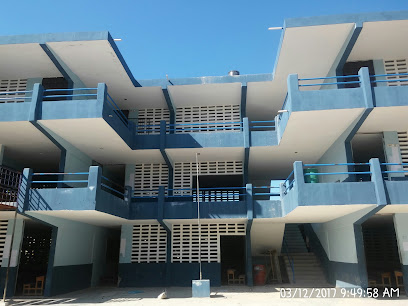
Chez Monique Restaurant
Experience authentic Haitian cuisine at Chez Monique Restaurant - where every dish tells a story.

Le Tablier Créole
Experience authentic Haitian cuisine at Le Tablier Créole in Breman – where every meal is a celebration of flavor and culture.
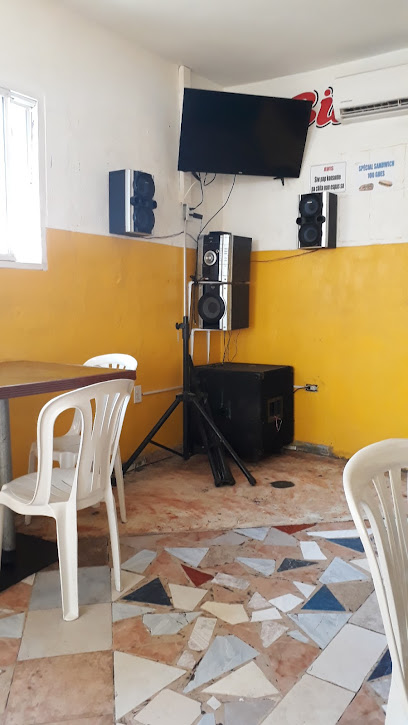
Restoran Lakay Fondwa
Experience the rich flavors of Haiti at Restoran Lakay Fondwa in Jacmel – where every dish tells a story.
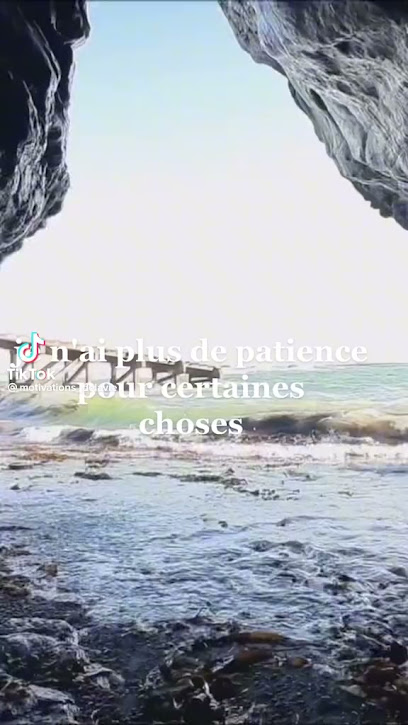
Easy Snacks
Savor authentic Haitian flavors at Easy Snacks in Jacmel – where delightful bites meet warm hospitality.

BENN fastfood
Experience the vibrant flavors of Jacmel at Benn Fastfood, where quick bites meet local charm.
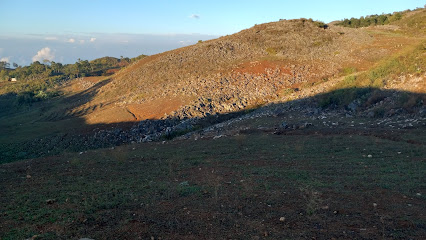
Tonyolly’s forêt Enchanntée Restaurant Bar
Experience authentic Haitian cuisine surrounded by nature at Tonyolly’s Forêt Enchantée Restaurant Bar in La Vallée-de-Jacmel.
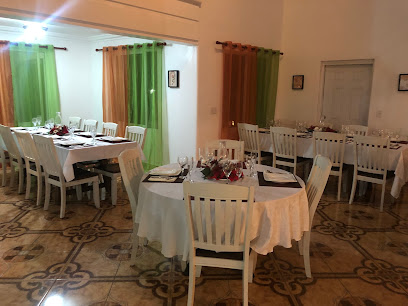
Fred Pica Pollo
Discover delicious fast food at Fred Pica Pollo in Jacmel - where local flavors meet convenience in every bite.
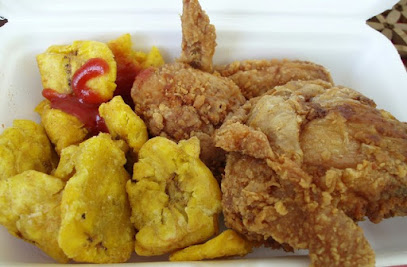
Rendez-vous
Discover authentic Haitian flavors at Rendez-vous in Cayes-de-Jacmel—where every meal is a celebration of local culinary traditions.

Markets, malls and hidden boutiques
Star Plus Market
Discover the local flavors of Jacmel at Star Plus Market, a vibrant grocery store filled with fresh produce and authentic Haitian products.
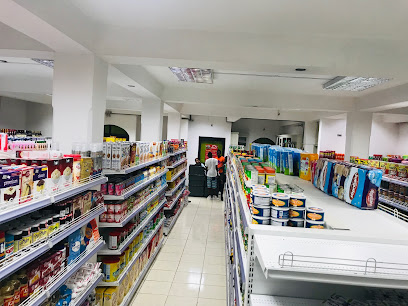
Les Entreprises Sourvenir
Explore diverse household appliances at Les Entreprises Sourvenir in Jacmel, where quality meets affordability in a vibrant shopping experience.
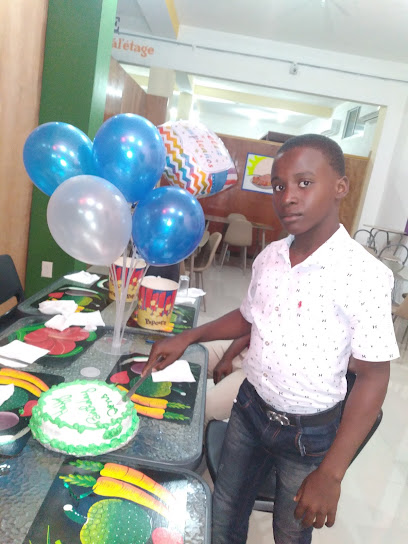
Matekha
Explore Matekha in Jacmel: A hardware store where local culture meets craftsmanship, providing essential supplies and a unique shopping experience.
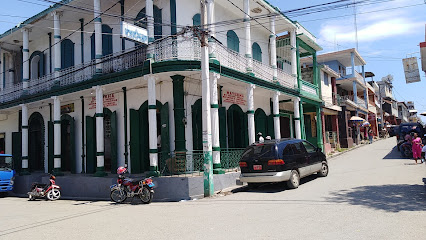
Philipe Supermarket
Discover local flavors and vibrant culture at Philipe Supermarket in Jacmel, your essential stop for authentic Haitian culinary experiences.

Nely Store
Explore Nely Store in Jacmel for a unique shopping experience, offering vibrant Haitian fashion and handcrafted treasures.
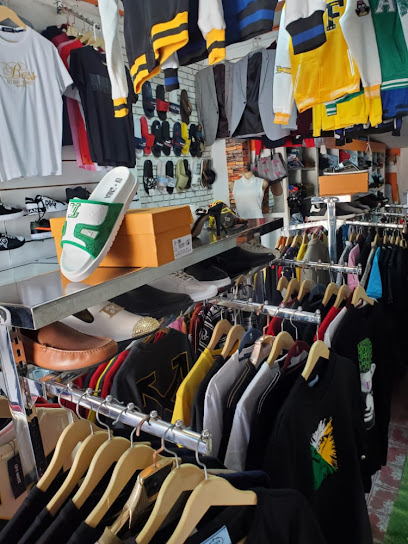
Les Créations Moro
Explore the vibrant artistry of Jacmel at Les Créations Moro, where each handcrafted souvenir tells a story of Haitian culture and craftsmanship.
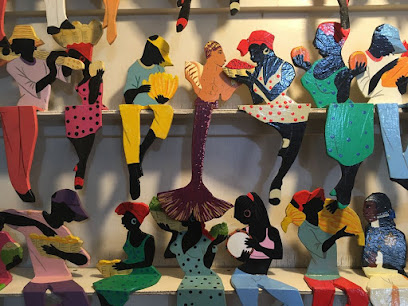
Ed'H
Explore Ed'H, Jacmel's vibrant shopping mall, where local culture, artisan crafts, and delicious cuisine meet in a lively atmosphere.
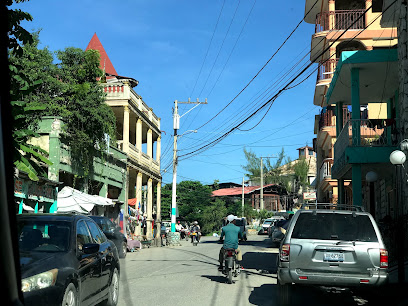
Original Store Jacmel
Experience the vibrant culture and unique shopping offerings at Original Store Jacmel, a must-visit department store in the heart of Jacmel, Haiti.

Kimi collection store
Explore unique furniture and local crafts at Kimi Collection Store in Jacmel, where every purchase supports local artisans and sustainable practices.

Imagine Group Haiti
Explore the unique blend of electronics and local craftsmanship at Imagine Group Haiti in the artistic town of Jacmel, Haiti.

Mon désir store
Discover men's fashion at Mon Désir Store, where local culture meets stylish apparel in the heart of Jacmel.
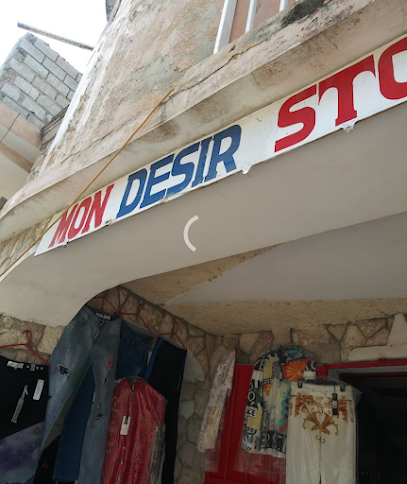
Real Dream Haiti multi-services
Stay connected in Jacmel with Real Dream Haiti, your premier cell phone store offering a variety of mobile devices and expert services for tourists and locals alike.

Jacmel Mozaik
Discover the vibrant artistry of Haiti at Jacmel Mozaik, a boutique showcasing local crafts and unique souvenirs in the heart of Jacmel.
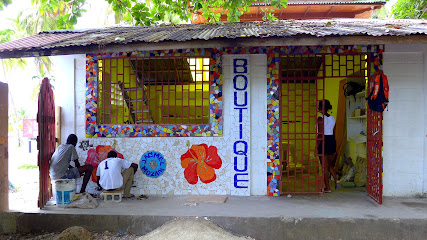
Ste claire Hyrvelt Dépot
Experience the essence of Jacmel at Ste Claire Hyrvelt Dépot, where local craftsmanship meets vibrant culture in a charming store.
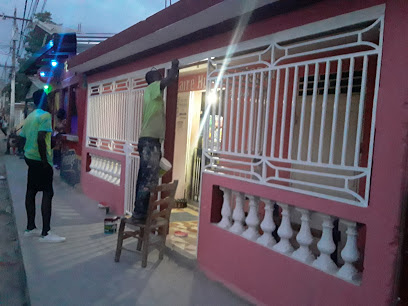
Good Vibes Concept Store
Explore Good Vibes Concept Store in Jacmel for unique local gifts and vibrant artisan crafts that capture the heart of Haitian culture.

Essential bars & hidden hideouts
Lakayakayanm bar Jacmel
Discover the vibrant atmosphere and local brews at Lakayakayanm Bar, Jacmel's premier beer hall for tourists seeking an authentic experience.
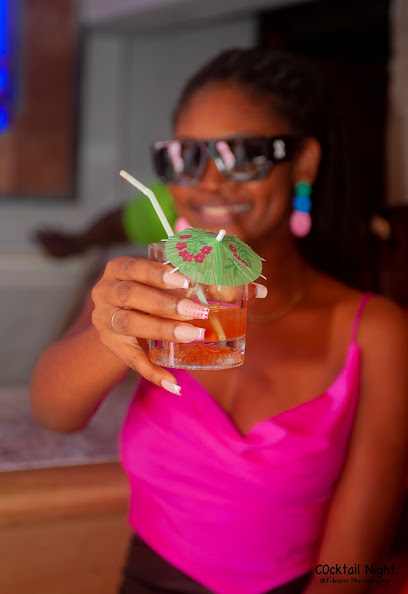
Nadi Bota Bar
Discover the vibrant atmosphere of Nadi Bota Bar in Jacmel, serving tropical cocktails and showcasing local culture in a lively setting.
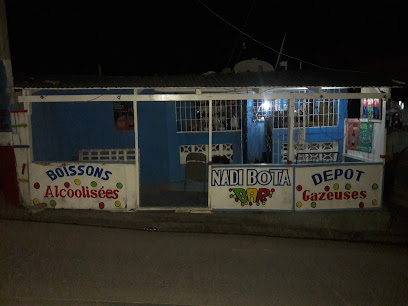
Next Génération's Bar (Louda)
Discover the lively ambiance and local music scene at Next Génération's Bar (Louda) in Jacmel, Haiti, your go-to destination for unforgettable nights.
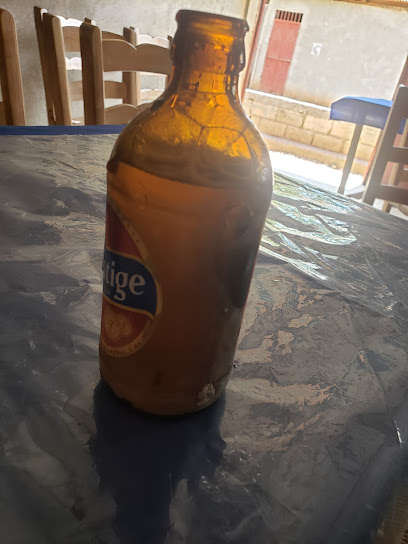
Vieux Fou Bar
Experience the vibrant nightlife of Jacmel at Vieux Fou Bar, where live music and local culture create unforgettable memories.

Tropical
Discover the vibrant atmosphere and refreshing cocktails at Tropical Bar, the perfect getaway in Jacmel's lively scene.
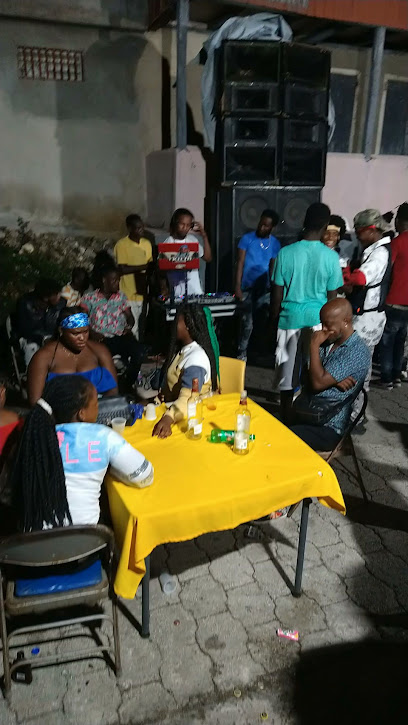
Le Bar-Ranquilla
Discover the vibrant nightlife of Jacmel at Le Bar-Ranquilla, where local culture meets refreshing cocktails and live music.

Coin des Amis
Experience the vibrant rhythms of Jacmel at Coin des Amis, the ultimate live music bar where culture and energy collide.

Noune Bar-Reto
Experience the vibrant flavors of Haiti at Noune Bar-Reto, a must-visit restaurant in Jacmel for authentic local cuisine and a warm atmosphere.
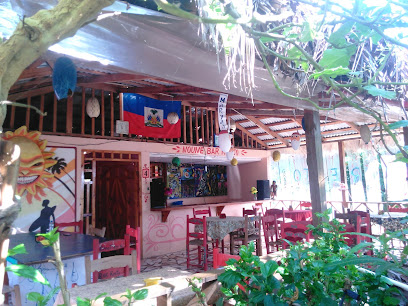
INDIEN PRODUCTION BAR
Experience the vibrant nightlife at Indien Production Bar in Jacmel, Haiti, where local culture meets refreshing cocktails and lively entertainment.

Sainte heureuse Jania bar
Experience the vibrant nightlife at Sainte Heureuse Jania Bar in Jacmel, where refreshing drinks meet lively music and local culture.
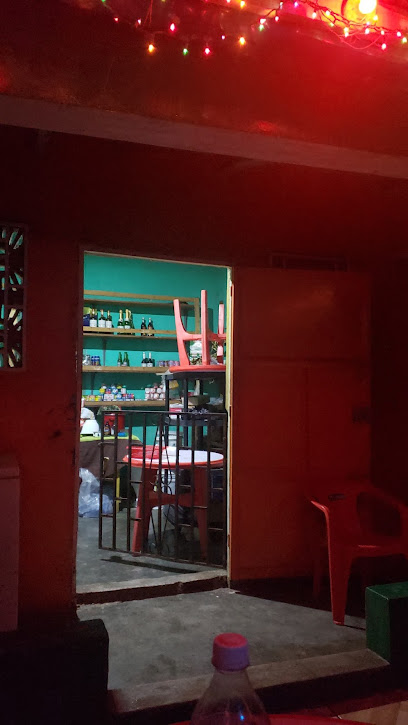
Food Delice Bar
Experience the vibrant nightlife of Jacmel at Food Delice Bar, where local flavors and lively entertainment come together in a colorful atmosphere.

Var élite club
Experience the vibrant nightlife at Var Élites Club, Jacmel's premier bar for music, drinks, and unforgettable moments.

Kay Zòt
Experience the vibrant atmosphere of Kay Zòt, a lively bar in Jacmel, Haiti, where local culture meets refreshing drinks and live music.

Bon Kolon Bar
Discover the vibrant atmosphere of Bon Kolon Bar in Jacmel, where local culture meets refreshing drinks and delicious snacks.

Cocktail PARADIS
Experience the best of Caribbean cocktails at Cocktail PARADIS in Jacmel, where vibrant flavors meet a relaxing atmosphere.

Local Phrases
-
- HelloBonjou
[bon-zho] - GoodbyeOrevwa
[oh-rev-wah] - YesWi
[wee] - NoNon
[non] - Please/You're welcomeTanpri
[tahn-pree] - Thank youMèsi
[meh-see] - Excuse me/SorryEskize mwen
[es-kee-zay mwen] - How are you?Kijan ou ye?
[key-jahn oo yay] - Fine. And you?Byen. E ou?
[byen. ay oo] - Do you speak English?Eske ou pale angle?
[es-kay oo pah-lay ahn-glay] - I don't understandMwen pa konprann
[mwen pah kohn-prahn]
- HelloBonjou
-
- I'd like to see the menu, pleaseMwen ta renmen wè meni an, tanpri
[mwen tah ren-men way meh-nee ahn tahn-pree] - I don't eat meatMwen pa manje vyann
[mwen pah mahn-jay vee-ahn] - Cheers!Sante!
[sahn-tay] - I would like to pay, pleaseMwen ta renmen peye, tanpri
[mwen tah ren-men pay-yay tahn-pree]
- I'd like to see the menu, pleaseMwen ta renmen wè meni an, tanpri
-
- Help!Ed mwen!
[ayd mwen] - Go away!Ale lwen!
[ah-lay lwehn] - Call the Police!Rele lapolis!
[reh-lay lah-poh-lees] - Call a doctor!Rele yon doktè!
[reh-lay yohn dohk-tay] - I'm lostMwen pèdi
[mwen pay-dee] - I'm illMwen malad
[mwen mah-lahd]
- Help!Ed mwen!
-
- I'd like to buy...Mwen ta renmen achte...
[mwen tah ren-men ach-tay] - I'm just lookingMwen jis ap gade
[mwen zjeez ahp gahd] - How much is it?Konbyen li ye?
[kohn-byen lee yay] - That's too expensiveSa twò chè
[sah twah shay] - Can you lower the price?Eske ou ka ba pri la?
[es-kay oo kah bah pree lah]
- I'd like to buy...Mwen ta renmen achte...
-
- What time is it?Kisa lè li ye?
[kee-sah lay lee yay] - It's one o'clockLi se yon lè
[lee say yohn lay] - Half past (10)Demi (10)
[deh-mee (dis)] - MorningMaten
[mah-ten] - AfternoonApremidi
[ah-pray-mee-dee] - EveningAswè
[ah-sway] - YesterdayYe
[yay] - TodayJodi a
[zho-dee ah] - TomorrowDemenn
[deh-menn] - 11
[1] - 22
[2] - 33
[3] - 44
[4] - 55
[5] - 66
[6] - 77
[7] - 88
[8] - 99
[9] - 1010
[10]
- What time is it?Kisa lè li ye?
-
- Where's a/the...?Ki kote...?
[kee koh-tay] - What's the address?Kisa adrès la ye?
[kee-sah ah-drehs lah yay] - Can you show me (on the map)?Eske ou ka montre mwen (sou kat la)?
[es-kay oo kah mohn-tray mwen (soh kaht lah)] - When's the next (bus)?Kile pwochen (bis la)?
[keel peuh-shen (bees lah)] - A ticket (to ....)Yon tikè (pou ....)
[yohn tee-kay (poo ....)]
- Where's a/the...?Ki kote...?
History of Jacmel
-
Jacmel, officially founded in 1698, is a city situated on the southern coast of Haiti. Initially established by French colonists, Jacmel quickly became an important port and trading hub due to its strategic location and natural harbor. The town’s architecture and layout were influenced heavily by French colonial designs, contributing to its unique charm and historical significance.
-
Though the Battle of Vertières did not occur in Jacmel, the city played a crucial role during the Haitian Revolution. Jacmel was a stronghold for revolutionary forces, including leaders such as Toussaint L'Ouverture and Alexandre Pétion. The city's support and resources were instrumental in the eventual Haitian victory over the French, culminating in the Battle of Vertières in 1803 and the declaration of Haiti's independence on January 1, 1804.
-
In 1896, a devastating fire swept through Jacmel, destroying much of the city’s infrastructure and many of its iconic wooden buildings. The fire prompted a significant rebuilding effort, during which many structures were reconstructed using fire-resistant materials such as stone and brick, leading to the unique architectural blend that Jacmel is known for today.
-
Jacmel is famous for its vibrant annual Carnival, which showcases the city’s rich cultural heritage. Held every February, the event features colorful parades, elaborate costumes, and traditional music and dance. The Carnival is a major attraction that draws visitors from around the globe, offering a vivid display of the creativity and spirit of Jacmel’s residents.
-
The 2010 earthquake that struck Haiti caused significant damage to Jacmel, impacting its infrastructure and historic buildings. Despite the devastation, the city has been resilient in its recovery efforts. International aid and local initiatives have focused on restoring Jacmel’s cultural sites and improving its infrastructure, ensuring that the city continues to thrive as a cultural and historical hub.
-
Jacmel is renowned for its vibrant arts scene, particularly its papier-mâché creations. Local artisans produce a variety of handcrafted items, from masks and sculptures to jewelry and paintings. The city has become a center for artists and craftsmen, with its creative output contributing significantly to both the local economy and cultural identity.
-
Jacmel’s architecture is a testament to its rich history and cultural influences. The city’s streets are lined with 19th-century mansions featuring ornate balconies and intricate ironwork, reflecting a blend of French colonial and Caribbean styles. These historic buildings provide a picturesque backdrop and a glimpse into the city’s storied past.
-
Jacmel has earned a reputation as a hub for Haitian cinema, hosting the annual Festival Film Jakmèl. This event celebrates the country’s film industry and provides a platform for local and international filmmakers to showcase their work. The festival contributes to Jacmel’s cultural landscape and promotes Haitian cinema on a global stage.
Jacmel Essentials
-
Jacmel is located on the southern coast of Haiti, approximately 85 kilometers from Port-au-Prince. The most common way to reach Jacmel is by road from Port-au-Prince. You can hire a private car, take a taxi, or use one of the local bus services (known as 'tap-taps'). The journey typically takes around 3 to 4 hours depending on traffic and road conditions. Alternatively, there are domestic flights available from Port-au-Prince to Jacmel Airport, which provide a quicker but more expensive option.
-
Within Jacmel, transportation options include taxis, moto-taxis (motorcycle taxis), and tap-taps. Taxis are convenient for short distances but may be more expensive. Moto-taxis are more affordable and can navigate the narrow streets with ease, but always agree on the fare before starting the ride. Tap-taps are shared minibuses that follow set routes and are the most economical option, though they can be crowded. Walking is also a viable option for exploring central Jacmel, as the town is relatively compact.
-
The official currency in Haiti is the Haitian Gourde (HTG), but US dollars are widely accepted in Jacmel. It is advisable to carry small denominations of both currencies for convenience. Credit cards are accepted in some hotels, restaurants, and shops, but smaller establishments and street vendors typically prefer cash. ATMs are available in Jacmel, but it is wise to withdraw sufficient cash in Port-au-Prince before traveling to ensure you have enough funds.
-
Jacmel is generally safer than some other parts of Haiti, but it is still important to take standard precautions. Avoid walking alone at night, particularly in unfamiliar or poorly lit areas. Be cautious in crowded places and keep an eye on your belongings to avoid pickpocketing. Areas with higher crime rates include the outskirts of Jacmel and some isolated beach areas. Always ask locals or trusted guides about current safety conditions.
-
In case of emergency, dial 114 for police assistance or 118 for medical emergencies. Jacmel has a local hospital and several clinics for medical care. It is recommended to have travel insurance that covers medical emergencies. For minor health issues, pharmacies are available in the town where you can purchase over-the-counter medications. Keep emergency contact numbers and your travel insurance details readily accessible.
-
Fashion: Do dress modestly, particularly when visiting religious sites or rural areas. Avoid wearing overly revealing clothing. Religion: Do respect local customs and traditions. It is polite to greet people with 'Bonjour' or 'Bonsoir' and to dress appropriately in churches. Public Transport: Do be respectful and patient when using tap-taps, as they can be crowded and slow. Don't argue over fares; agree on the price beforehand. Greetings: Do greet people with a handshake or a nod. Haitians appreciate polite and respectful interactions. Eating & Drinking: Do try local dishes and show appreciation for the food. Don't refuse hospitality, as it is considered rude.
-
To experience Jacmel like a local, visit the vibrant local markets where you can buy fresh produce, handmade crafts, and traditional Haitian goods. Engage with locals, who are often friendly and willing to share stories about their town's history and culture. Don't miss the annual Jacmel Carnival, a colorful celebration of music, dance, and art. For a unique experience, explore the town's beautiful colonial architecture, visit the art galleries, and relax on the picturesque beaches. Take time to appreciate the local cuisine, especially the seafood dishes.
Trending Landmark in Jacmel
-
Champ de Mars
-
Raymond Les Bains
-
Hotel Cyvadier
-
Cap Lamandou Hotel
-
Fort Jacques et Fort Alexandre
-
Bassin Bleu
-
Lakou New York
-
Jean-Jacques Dessalines Monument
-
Hotel Florita Residential Hotel
-
Cafe Koze
-
Tour 2004 Bicentennial Monument
-
Hotel De La Place
-
Jacmel Arts Center (Sant D'A Jakmel)
-
Place Toussaint Louverture Jacmel
-
Marigot
Nearby Cities to Jacmel
-
Things To Do in Petionville
-
Things To Do in Port-au-Prince
-
Things To Do in Saint-Marc
-
Things To Do in Hinche
-
Things To Do in Les Cayes
-
Things To Do in Gonaïves
-
Things To Do in Cap-Haïtien
-
Things To Do in Jérémie
-
Things To Do in Jarabacoa
-
Things To Do in Puerto Plata
-
Things To Do in Santo Domingo
-
Things To Do in Samana
-
Things To Do in Salt Cay
-
Things To Do in La Romana
-
Things To Do in South Caicos






